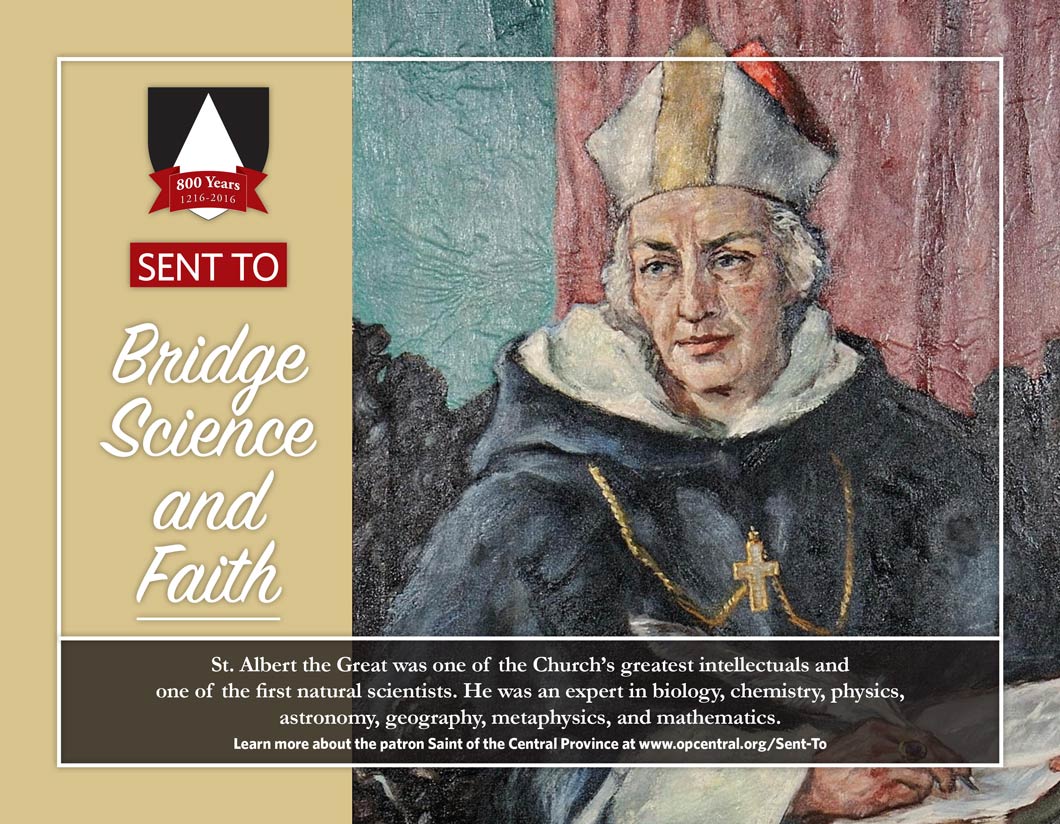Faith & Science Reading Plan
While it is true that most Catholics today are aware that there is no real tension between faith and science, it is not always the case that non-Catholics will know this. The following list is less scientific and more philosophical.
Several of these books (like Burtt’s Metaphysical Foundations of Modern Science) are quite difficult, in fact. Nevertheless, any one of them provides introductory lessons in modern or contemporary science, — which we think the friar-to-be or the young professional will find very useful.
These books may be read out-of-order, but we strongly recommend reading Barr’s Modern Physics and Ancient Faith first.
Several of these books (like Burtt’s Metaphysical Foundations of Modern Science) are quite difficult, in fact. Nevertheless, any one of them provides introductory lessons in modern or contemporary science, — which we think the friar-to-be or the young professional will find very useful.
These books may be read out-of-order, but we strongly recommend reading Barr’s Modern Physics and Ancient Faith first.
|
Stage 1
1. Stephen M. Barr’s Modern Physics and Ancient Faith Are faith and science opposed? A question most Catholics have been asked at one point or another. Barr, a professor physics and director of the Bartol Research Institute, answers with a resounding no. Rather, modern science, when truly investigated, serves to strengthen our cosmological proofs for God. While not all of it will be easily read by one lacking a scientific or mathematical background, Barr manages to summarize in simple and clear language so that one comes away with a generalist's understanding and firm foundation for more. 2. Stephen M. Barr’s Student’s Guide to Natural Science Beginning with the Greeks and continuing until modern day, Barr charts the course and development of the natural sciences through the centuries. He points readers to the continuing and growing evidence for a universal principle or structure of harmony governing the universe and the laws of nature. Stage 2
1. Stanley Jaki’s Savior of Science Far from being an enemy of science, it is in the Christian tradition that we find the birth and full flourishing of science and the truth birth. Theology has historically played a key role in preserving and enhancing natural science and Jaki brings that well-kept secret to the forefront in this fine work. 2. Brendan Purcell’s From Big Bang to Big Mystery A philosopher at heart, Fr. Purcell's text asks the big questions: How and when did humans arise on the scene? What is human consciousness and what can we say about it? A broad overview, but one filled with first-rate research and thought. For Purcell, theology, science, and philosophy complement one another, enabling an ever greater understanding of the universe we live within. Stage 3
1. Gerard Verschuuren’s Aquinas and Modern Science Science Science has much to offer us but in recent days it seems that science is attempting to leave philosophy further and further behind. Verschuuren rejects that idea in this small but witty book. Philosophy, and in particular, Aristotelian-Thomistic philosophy, remain relevant for modern science. An excellent study of Thomistic principles paired with cutting-edge scientific research and knowledge. 2. Carlo Rovelli’s Seven Brief Lessons on Physics Some have commented that mathematics and physics have a poetry all their own, but rare is it that a physicist like Rovelli can explain and expound upon black holes, relativity, quantum mechanics and more with such entertaining and enchanting ease. A book not to be missed, Rovelli's moves at a quick pace, giving the reader the sense of running along the journey of discovery themselves. Stage 4
1. Martin Gardner’s Relativity Simply Explained While a number of the books on this list are challenging and outright difficult, this is not one of them. An entertaining read and probably one of the best, most up-to-date introductions to Einstein's theory of relativity. 2. Edward Feser’s Aristotle’s Revenge Perhaps the most obviously philosophical work on this list, Feser is a leading voice in the world of Thomism today. He lays out in modern language what both Aquinas and Albert the Great knew well: to understand biology and the natural world we must first understand the metaphysical principles which underlie them. Stage 5
1. E. A. Burtt’s Metaphysical Foundations of Modern Science Humankind no longer sits at the center of the modern universe. But in the Middle Ages it was not so; it was humanity which was the center and summit of the universe, despite our smallness everything was for us. Burtt's text serves as both an analysis of the great accomplishments that this turn managed to achieve but also as a critique of the modern turn which displaced humanity and enforced new limitations upon our understanding of the world. 2. R. J. Spitzer’s New Proofs for the Existence of God A Jesuit priest and an eminent scholar, Fr. Spitzer does a remarkable job of presenting the latest scientific evidence and crafting a synthesis with classic cosmological proofs for the existence of God. A compelling work which is sure to delight. |
